Filter by
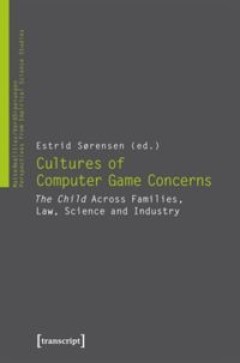
Cultures of computer game concerns : the child across families, law, science …
The same computer games are played by youths all over the world, and worldwide games become matters of concern in relation to children: worries rise about addiction, violence, education, time, and economy. Yet, these concerns vary depending upon where they are situated: in families, legal contexts, industry or science. They also play out differently across countries and cultures. This situated …
- Edition
- -
- ISBN/ISSN
- 9783839439340
- Collation
- III, 355 p.
- Series Title
- VerKörperungen/MatteRealities - Perspektiven empirischer Wissenschaftsforschung, 23
- Call Number
- 794.8 CUL c

Trademark and unfair competition conflicts : historical-comparative, doctrina…
With the rise of internet marketing and e-commerce around the world, international and cross-border conflicts in trademark and unfair competition law have become increasingly important. In this groundbreaking work, Tim Dornis - who, in addition to his scholarly pursuits, has worked as an attorney, a public prosecutor, and a judge, giving him experience in both civil and common-law jurisdictions…
- Edition
- -
- ISBN/ISSN
- 9781316651285
- Collation
- lii, 644p. : ill.
- Series Title
- -
- Call Number
- 346.0488 DOR t
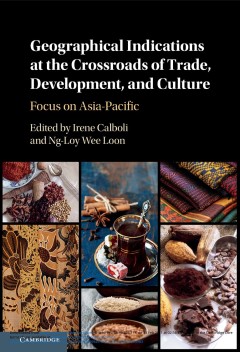
Geographical indications at the crossroads of trade, development, and culture…
Historically, few topics have proven to be so controversial in international intellectual property as the protection of geographical indications (GIs). The adoption of TRIPS in 1994 did not resolve disagreements, and countries worldwide continue to quarrel today as to the nature, the scope, and the enforcement of GI protection nationally and internationally. Thus far, however, there is little l…
- Edition
- -
- ISBN/ISSN
- 9781316711002
- Collation
- xx, 550p : ill.
- Series Title
- -
- Call Number
- 382.3 GEO g

Evidence and innovation in housing law and policy
No area of law and policy is more central to our well-being than housing, yet research on the topic is too often produced in disciplinary or methodological silos that fail to connect to policy on the ground. This pathbreaking book, which features leading scholars from a range of academic fields, cuts across disciplines to forge new connections in the discourse. In accessible prose filled with c…
- Edition
- -
- ISBN/ISSN
- 9781316691335
- Collation
- xiii, 342p. : ill.
- Series Title
- -
- Call Number
- 344.063635 EVI e
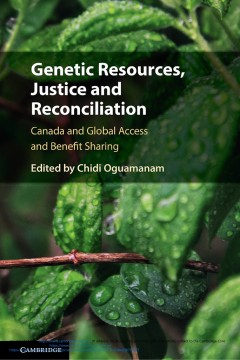
Genetic resources, justice and reconciliation : Canada and global access and …
When the oral history of a medicinal plant as a genetic resource is used to develop a blockbuster drug, how is the contribution of indigenous peoples recognized in research and commercialization? What other ethical, legal, and policy issues come into play? Is it accurate for countries to self-identify as users or providers of genetic resources? This edited collection, which focuses on Canada, i…
- Edition
- -
- ISBN/ISSN
- 9781108557122
- Collation
- xix, 279p. : ill.
- Series Title
- -
- Call Number
- 346.710469534 GEN g
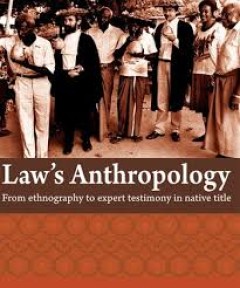
Law's Anthropology
Anthropologists have been appearing as key expert witnesses in native title claims for over 20 years. Until now, however, there has been no theoretically-informed, detailed investigation of how the expert testimony of anthropologists is formed and how it is received by judges. This book examines the structure and habitus of both the field of anthropology and the juridical field and how they hav…
- Edition
- -
- ISBN/ISSN
- 9781921862434
- Collation
- x, 236p.: ill.
- Series Title
- -
- Call Number
- 346.9404320899915 BUR l

Integrated groundwater management : concepts, approaches and challenges
The aim of this book is to document for the first time the dimensions and requirements of effective integrated groundwater management (IGM). Groundwater management is a formidable challenge, one that remains one of humanity’s foremost priorities. It has become a largely non-renewable resource that is overexploited in many parts of the world. In the 21st century, the issue moves from how to si…
- Edition
- -
- ISBN/ISSN
- 9783319235769
- Collation
- xiii, 762p. : ill.
- Series Title
- -
- Call Number
- 628.114 INT i
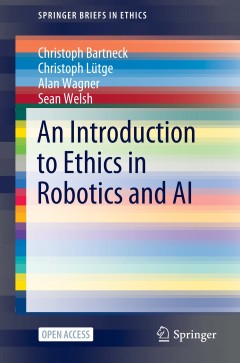
An introduction to ethics in robotics and AI
This open access book introduces the reader to the foundations of AI and ethics. It discusses issues of trust, responsibility, liability, privacy and risk. It focuses on the interaction between people and the AI systems and Robotics they use. Designed to be accessible for a broad audience, reading this book does not require prerequisite technical, legal or philosophical expertise. Throughout, t…
- Edition
- -
- ISBN/ISSN
- 9783030511104
- Collation
- xi, 117p. : ill.
- Series Title
- -
- Call Number
- 343.09944 INT i
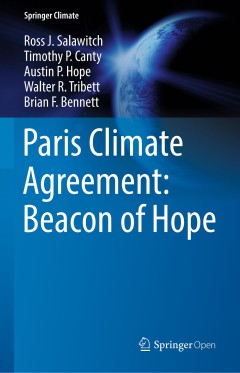
Paris climate agreement : beacon of hope
This volume presents an Empirical Model of Global Climate developed by the authors and uses that model to show that global warming will likely remain below 2ºC, relative to preindustrial, throughout this century provided: a) both the unconditional and conditional Paris INDC commitments are followed; b) the emission reductions needed to achieve the Paris INDCs are carried forward to 2060 and be…
- Edition
- -
- ISBN/ISSN
- 9783319469393
- Collation
- xvii. 186p. : ill.
- Series Title
- -
- Call Number
- 363.738746 PAR p
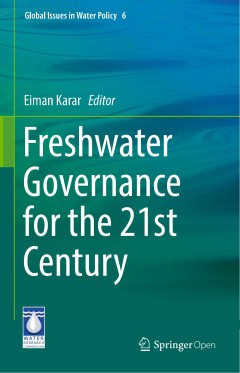
Freshwater governance for the 21st century
The objective of this book is to broadly illustrate the key aspects of water governance, mapping the spectrum of decision-making from techno-centric and eco-centric approaches, to hybrid concepts and people-centric approaches. Topics covered include the challenges for water-governance models, the polycentric model, the integration challenge, water in the decision-making hierarchy, and the rise …
- Edition
- -
- ISBN/ISSN
- 9783319433509
- Collation
- xxvii, 250p. : ill.
- Series Title
- -
- Call Number
- 343.0924 FRE f
 Computer Science, Information & General Works
Computer Science, Information & General Works  Philosophy & Psychology
Philosophy & Psychology  Religion
Religion  Social Sciences
Social Sciences  Language
Language  Pure Science
Pure Science  Applied Sciences
Applied Sciences  Art & Recreation
Art & Recreation  Literature
Literature  History & Geography
History & Geography